Director’s Notebook
The first impression I had when meeting CEO Ming-Yen Wu was one of openness, passion and energy. However, when I saw pictures of Wu when preparing for my interview, my impression was completely different. It turned out that Wu had lost 15 kilograms within half a year. His reason for losing weight was the same as his decision behind becoming the CEO of Medical Excellence Taiwan (MET). Wu made the effort to improve his health in order to “do a bit more” for medicine, the profession he’s been in for over 30 years.
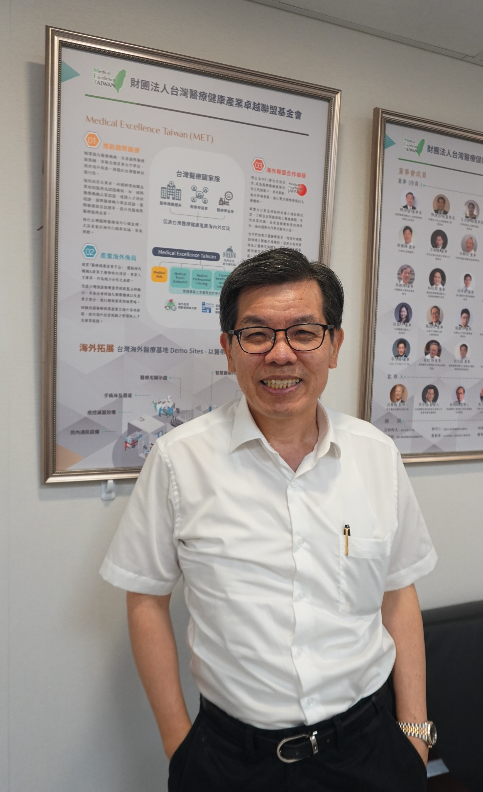
Picture 1: CEO Ming-Yen Wu in the office of MET
(Photo credit: Pei-Lin Lin)
Promoting New Southbound Medicine through Wu’s “Made In Taiwan Demo Sites”
After finishing another last-minute meeting, Wu ran back to the MET offices in the sweltering 32-degree heat. Wu set down his bag, and without even taking a sip of water, started talking enthusiastically about the story behind founding MET.
Wu said, “MET was founded two years ago and is responsible for promoting the New Southbound Policy. Earlier in my career, I worked in the Legislative Yuan and came up with the concept of Demo Sites.”
To explain what’s involved in these “Overseas Demo Sites,” Wu looked at a giant poster that was behind him and pointed at pictures of stuff found in your average hospital such as operating tables, hospital beds, sterilization equipment, smart medical devices, and electronic nurse stations. This type of medical equipment has already made a name for itself around the world while bringing significant advantages in promoting comprehensive strategies for international medicine and business.
Driving Industry Through Medicine
Wu translated the pictures and text on the poster personally, which gives the impression that Taiwan has had a strong presence in medicine for years, and is another reason as to why many countries hope to imitate Taiwan’s success in this area. Take Chang Gung Memorial Hospital for example. The hospital beds in Chang Gung are a huge selling point. In the past, the nursing stations had whiteboards with markers scrawled all over them. These have been replaced with 120-inch digital monitors. In addition, the medical hardware and software, from the electronic nursing stations to the TVs in the sickrooms and the tablets that the doctors use, are all made in Taiwan.
Wu smiled and said, not long ago he talked with a manager of a Taiwanese factory that makes displays. The manager told Wu that his company manufactured displays for Mercedes-Benz. Since these panels are Mercedes-Benz certified, this can be considered one of the strongest parts of Taiwan’s medical industry. Moreover, during their discussion, the manager said that Taiwan should use medicine to drive the Taiwanese industry into international markets. Even though it’s not currently possible, it would be best if Taiwan were able to export all of its medical products and establish Demo Sites abroad. As long as Taiwan can set up a Demo Site through a joint outpatient center, the country would have an optimal channel to display its medical prowess and expertise.
Wu also said, after going abroad for official observations, medical professionals around the world find it hard to believe the efficiency of Taiwan’s patient registration system. Therefore, Wu said, we came up with the concept for modular exports to promote Taiwan’s medical hardware and software. As such, these Demo Sites are undoubtedly the best way to start selling Taiwanese medical equipment abroad.
Entering Medical Markets in Malaysia and Vietnam
In a very conspicuous place in Wu’s office, there’s a uniquely shaped award inscribed with “Chairman of Kuala Lumpur International Healthcare Centre Dato' Dr. Chen Rongzhou” on it.
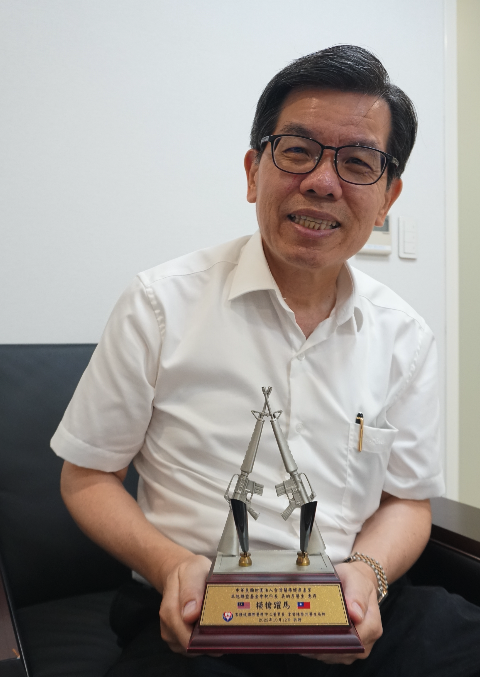
Picture 2: Wu holding an award given to him by Chairman of Kuala Lumpur International Healthcare Centre Dato' Dr. Chen Rongzhou (Photo Credit: Pei-Lin Lin)
When mentioning this cooperative relationship, Wu was especially happy to show me a video taken from a drone on his phone. The video was shot in Penang, Malaysia, which is in between the mountains and the sea near a bustling district filled with government offices. When talking about Dr. Chen from the awards, Wu mentioned that Chen has been a partner in investing in a medical demonstration hospital and is a dentist of Chinese descent who studied in Taiwan. Chen currently operates a highly successful dental center in Malaysia and has always aspired to run a smart hospital. Therefore, this collaboration hopes to become an operational medical demonstration hospital that extends the mission of the stationary medical demonstration site established by Chang Gung Memorial Hospital in Malaysia last year (2022) to showcase Taiwan's comprehensive medical capabilities from hardware and software to management and enhancing the subsequent effects of the "medical-led industry."
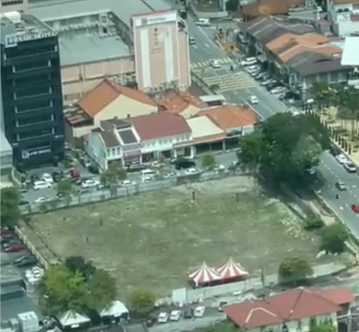
Picture 3: Planned Site of the Cooperative Hospital in Malaysia
(Photo Credit: Ming-Yen Wu)
Why was Malaysia selected as the first choice? When evaluating various Southeast Asian countries, Wu determined that Cambodia has recently received a lot of bad press. In addition, Myanmar and Laos have been impacted by political factors, making them less favorable for Taiwanese medical personnel. Thailand already has a thriving international medical sector and Thais have accepted for-profit hospitals, which have had groups in charge of marketing for years.
Therefore, after performing a comprehensive evaluation, Malaysia was considered to have several advantages due to it being a former British colony. First, the legal system is sound. Second, the ethnically Chinese population accounts for approximately 25%, with Penang having an even higher proportion of about 45% Chinese residents. Third, there is no language barrier between Taiwan and Malaysia. Despite this, the biggest challenge is that Taiwanese doctors and nurses currently are not able to obtain local licenses to practice there. This is a major difficulty, so it is not possible to directly replicate Taiwan's management approach in local medical operations. Instead, efforts will be made to strengthen the training of overseas medical personnel.
Wu is also making efforts in Vietnam. Since the era of "One Country, One Center," Vietnam has been actively involved in overseas healthcare deployment. Due to its large population and booming industries, Vietnam has been striving to catch up in terms of healthcare standards. As a result, there has been frequent interaction between Taiwan and Vietnam in medicine. Wu highlighted that over a hundred hospitals and clinics, which are currently part of the Taiwan working group, have participated in medical collaborations with Vietnam. Additionally, Vietnam is one of the few places where Taiwanese doctors can perform surgeries abroad. Previously, doctors from National Taiwan University Hospital have conducted demonstration surgeries directly at Vietnamese hospitals. Consequently, the Ministry of Health and Welfare has designated Vietnam as a “language priority country” and has been providing ongoing training programs for medical interpreters proficient in Vietnamese since April of 2023, with the aim of reducing language barriers in healthcare.
Internationalizing Medicine and Embarking on New Horizons
According to Wu, reaching this point today has not been easy at all. In the early years, whenever international healthcare was mentioned, there were differing opinions throughout Taiwan. There were concerns about the potential outflow or dispersal of healthcare personnel and resources, leading to a decline in the quality of healthcare for the citizens of Taiwan. But why has there been a significant shift now? Wu earnestly explained, "When I first advocated for international healthcare, it was to pursue low cost and differentiation to open up new markets for private hospitals. At the time, many private hospitals saw their profit margins plummet from around 15% to only about 2% after the implementation of the universal payment system under Taiwan’s national health insurance program. Just think, how can an industry survive if it loses 10% of its income?"
Returning to the challenging issue of talent retention, Wu looked back a few years ago when China offered nearly five times the salary to poach renowned Taiwanese doctors. So, how is it possible to retain talent while also considering hospital revenue and the financial stresses of everyday people? It was only when Wu passionately advocated for "international healthcare" that this issue began to receive attention.
The previous discussion focused on how Taiwan's healthcare industry is moving toward the New Southbound Policy. However, on the other hand, there are international medical patients from New Southbound countries who have the financial capability or desire to seek medical treatment in Taiwan due to constraints of their own countries' healthcare technology. As long as the number of these patients and the fees charged can maintain a reasonable proportion, it will not only impact the rights of Taiwanese patients to seek medical treatment but also significantly alleviate the operational challenges faced by hospitals.
CEO Wu further illustrated his point by using the example of Chang Gung Memorial Hospital. In 2019, international medical revenue accounted for less than 2% of total medical revenue, while the national health insurance revenue was approximately NT$70 billion. Even if just 1% of that amount were generated through international medical services, it would amount to NT$700 million. By maintaining the quality of national health insurance without raising premiums, the government can achieve a win-win situation by imposing proportional limits. From CEO Wu's perspective, the ideal proportion would be a maximum of 70:30, where the medical treatment levels for both Taiwanese and foreign patients are balanced, and hospitals can maintain a stable financial situation, thereby retaining excellent medical professionals.
The final remark Wu made during our interview was "Economists have stated that the sum of the output value of general medical services such as biotechnology, medical insurance, and pharmaceuticals is the second-largest value-added industry in Taiwan, following only the construction industry. The next trillion-dollar industry in Taiwan is smart healthcare. ‘Driving production with medicine’ means relying on healthcare to not only spur industrial progress but also enhance Taiwan’s economic development."
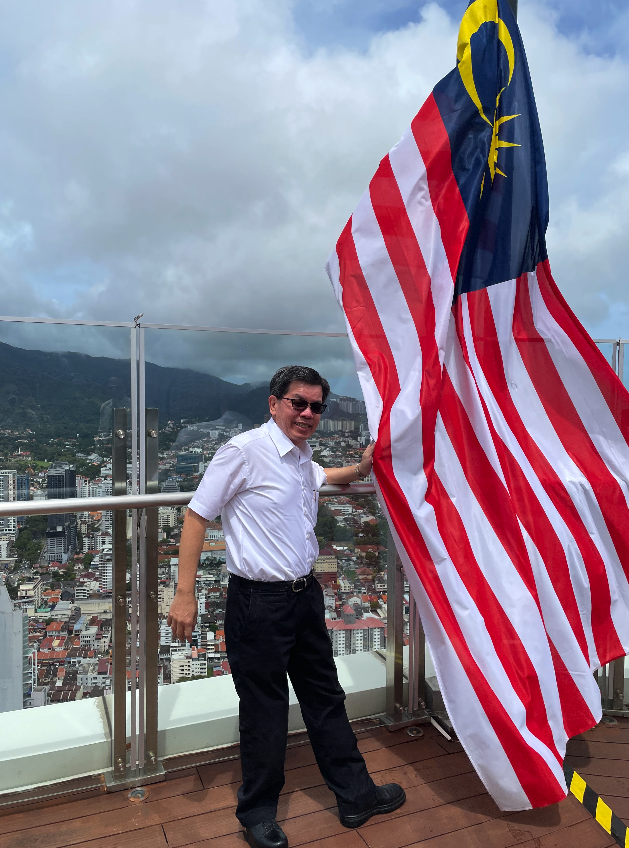
Picture 4: Wu at the current site of the International Medical Hospital during a survey in Penang
(Photo credit: Ming-Yan Wu)
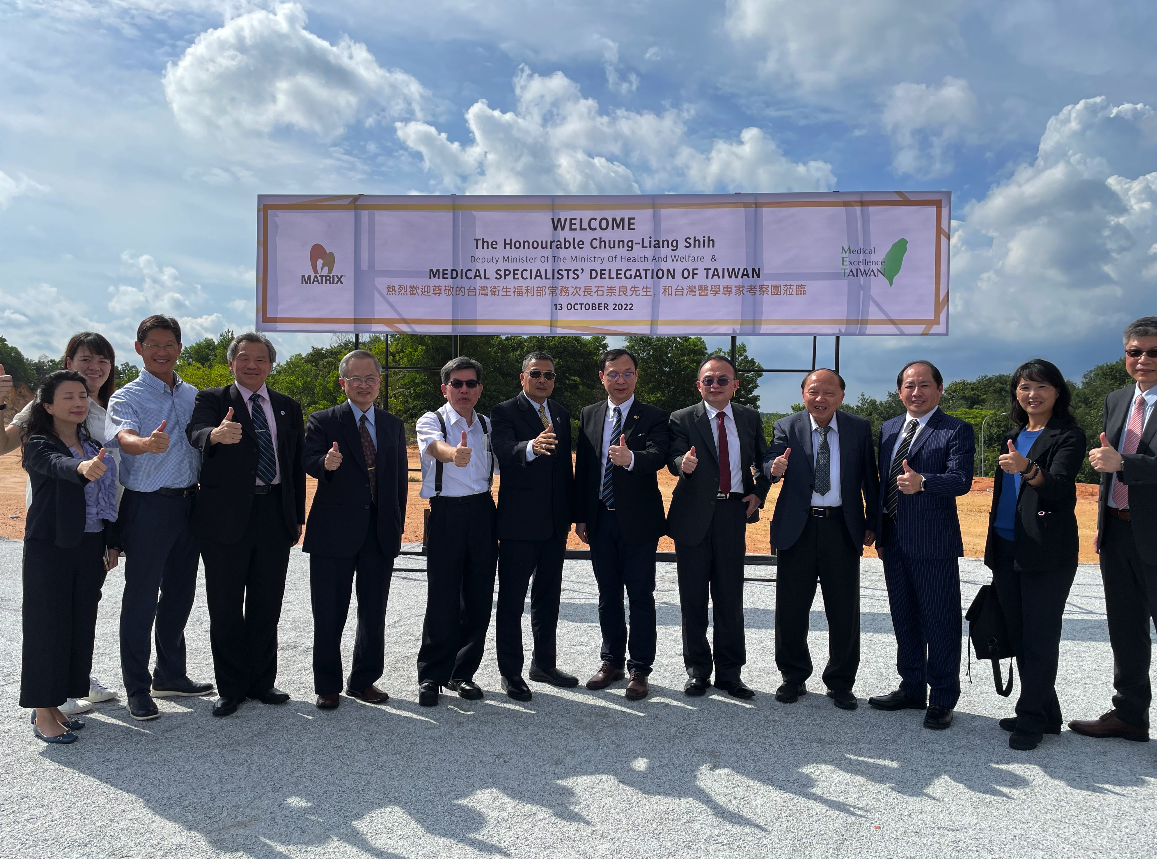
Picture 5: Former Deputy Minister of Health and Welfare, Shih Chung-Liang, and the MET team visit Malaysia to witness the selection of the overseas medical center location
(Photo credit: Ming-Yan Wu)
Columnist
.png) Pei-lin Lin
Pei-lin Lin
Pei-lin Lin obtained her B.A. in Philosophy from Fu Jen University and her M.A in Political Science from National Taiwan University. Lin embodies a humanistic literacy and political sensibility. In recent years, Lin has collaborated with the Taiwanese government to shoot videos promoting various policies. Currently, Lin splits her time between running a Chan Lands Ltd., Zongdipan, making documentary films and hosting the podcast “Human Translation Machine.” In the past, Lin has been a reporter for several media outlets and the anchor of shows on TVBS, CBC and Da Ai Television. While at Da Ai Television, Lin’s piece “Muhammad Yunus- Savior of the Poor,” was nominated at the First Taiwan Golden Wheel Awards for Outstanding Television News Feature.